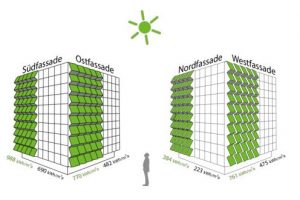38:24 min, from 11.03.2021
In this tutorial, Anne Albrecht, building consultant at Faktor X Agentur, shows you in detail how to enter an example house in massive construction into the climate and resource protection tool (KuRT) from start to finish.
Keywords: Building materials / Construction, DE-News, Faktor X / ResScore, Movies, Movies 11 to 45 Min, Recycling, Resource efficiency, Tools, Life cycle assessment



